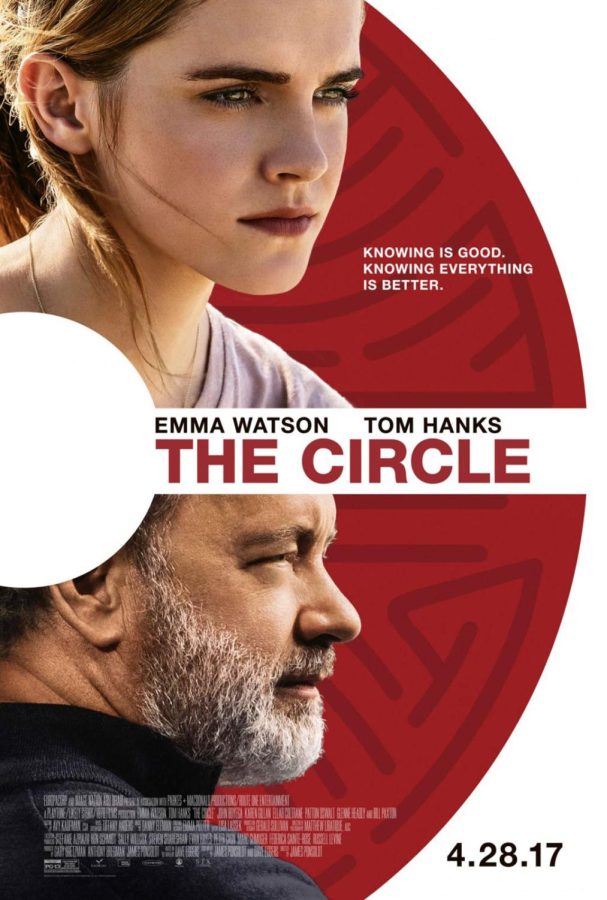REVIEW: ‘The Circle’ is tepid takedown of tech-driven future
Wouldn’t it be great if we could know everything about events happening in the world with the click of a single button? No, not with the internet. There are too many steps involved there. You’d have to scroll across endless pages and apps to get all that information.
That’s utterly exhausting.
What if there was one app that combined everything and made it all accessible in one place? You could pay your bills, register to vote, reconnect with a long-lost friend, find that cute-but-nameless guy you danced with at the bar last Friday, order take-out, track down criminals and so much more, all on one app. Tempting, isn’t it?
After all, “Knowing is good, but knowing everything is better.” At least that’s the premise of the tech-drama “The Circle” based on Dave Egger’s 2013 novel of the same name, which was the required Kent State First Year Experience course reading book back in Fall 2014.
With direction from James Ponsoldt and a screenplay co-written by Eggers, the project explores the risks and rewards of living in a tech-driven world that values the concept of transparency over privacy or freedom. The film becomes one running question about ethics in a modern world.
After dazzling in March’s “Beauty and the Beast,” Emma Watson takes the lead in the role of Mae Holland, the latest employee at prestigious tech company The Circle (think Google or Apple). Struggling to find work, Holland screams with joy when her friend gets her an interview that sends her on a wild ride into the cult-like corporation.
The job opens all sorts of opportunities for Holland, but it also brings a new level of stress to her life. Overwhelmed by the pressure of performing and a fight with a friend, Holland leaves the company’s campus and steals a kayak for a midnight ride to clear her mind. Caught in a sudden fog, she almost dies but is rescued after being spotted by one of The Circle’s latest surveillance devices.
Buoyed by the experience and a conversation with The Circle’s creators, Holland is driven to believe that privacy allows lies to foster and decides to broadcast every moment of her life using one of the cameras that saved her life. She becomes the equivalent of a YouTube celebrity, but, unlike them, she never turns off her camera.
The decision opens Holland’s eyes to the dangers endless surveillance has on her life as both her relationships and her mental health crumble in front of millions.
Watson delivers a layered performance in the role; However, her reactions never quite seem to match up with what is happening around her. She plays the timid new employee well, but her radicalization as she adopts to the company’s policy is less believable. She gets lost in the convoluted storyline and usually feels a step behind as the world advances around her.
In her job interview, Holland claims her greatest fear is unrealized potential. Watson, a capable actress, is the perfect example of this in the film.
She’s not alone — the film makes poor use of most of its actors. Household names like Tom Hanks, John Boyega and Patton Oswalt all become lost in the tepid drama that never truly lives up to the level of suspense that was promised.
“The Circle” raises valid questions about the risks of becoming more reliant on technology, but it fails to deliver a storyline that is as compelling as the lesson. Even the film’s conclusion leaves viewers wanting more, though it does answer one overarching question: It turns out sometimes a little privacy isn’t all that bad after all.
Michael Nied is the entertainment reviewer, contact him at [email protected]


